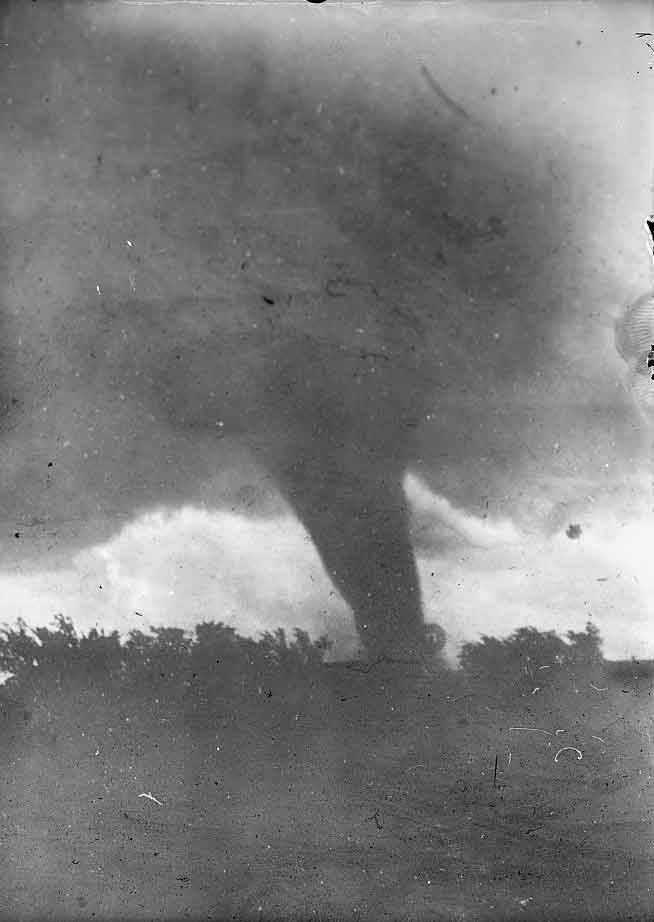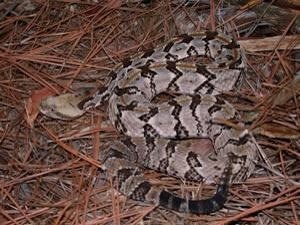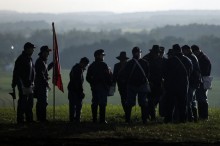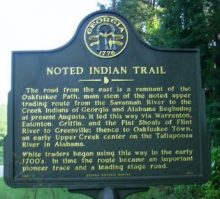Anne Royall (June 11, 1769 – October 1, 1854) was by some accounts the first professional woman journalist in the United States. When her husband’s died in 1797, there was intense litigation between Anne and her Royall relatives over his estate. After seven years of fighting, his will which left her most of his property was declared void and she was left penniless. The next four years, Anne traveled Alabama and wrote letters to her friends about the evolution of the young state. The letters were published as a book entitled Letters from Alabama in 1830.
In April 1822, Anne was in Huntsville, Alabama (now in Madison County, Alabama)where she wrote her friend Matt about a disastrous tornado that hit the town.
The letter has been transcribed exactly as published. (Including the misspellings)
Huntsville, April 1822
Dear Matt,
I Have not, as you suppose, forgotten you, though you are a sad boy. But I will lay the matter over till we meet.
SEE ALL BOOKS BY DONNA R CAUSEY
Dreadful tornado
You have heard and read of tornadoes. We had the most dreadful tornado, last week, that was every known in this country. The ravages of this dreadful calamity was confined to a ridge of high poor land, the nearest part of which, is about three miles from hence, though we had a severe gale here, the hardest by far I ever witnessed.
 A Tornado photograph taken by Harris and Ewing in 1913 (Library of Congress)
A Tornado photograph taken by Harris and Ewing in 1913 (Library of Congress)
It prostrated every thing before it in its career, trees, houses, fences, all raised to the foundation. Trees were said to be carried fifteen miles, twisted and split to atoms, and though strange, no lives were lost; most of the people were bruised and mangled, and lying on the ground, unable to disengage themselves from the fallen trees and houses; some with broken legs, some with broken arms, and all more or less injured, excepting one man and a few children. There they lay, and the rain pouring on them in torrents, and as dark as Egypt.
Discovered the next morning
It happened a little before midnight. By daylight, next morning, their situation being discovered, by their nearest neighbors, several expresses on horseback came into Huntsville, for surgeons, doctors, and assistance of every sort, as their clothing, and every atom they had in their houses were blown off, and never seen afterwards.
Roman Catholics assisted
Numbers jumped on their horses, doctors and all, and fled with the utmost speed to the sufferers; and amongst the foremost of these were the Sonano’s, the Italian gentlemen. But in their haste they did not forget to take clothes, money, wine, biscuit, coffee, sugar, and tea; and these are Roman Catholics, who have been stigmatized as worse than the d–l.
You will expect to hear that the christian went, I mean those professing religion. No such thing. Howard was sick, but he sent them money and food, and he is another Roman Catholic. But you have not heard the worst of it yet. Word was soon brought in, that there were twenty-one persons in all wounded, without food and clothing, and houseless—many of them widows and orphans1—a subscription was instantly set on foot, for their relief, and a paper carried round. Now, you would suppose that a Turk would not refuse relief in such a case; and you would suppose right: but do not imagine the professors subscribed—with the exception of one or two. When the paper was handed to them, they said
“There were so many, they could not help all; and it was not adviseable to help any unless they gave all some!!!”
One of these, a wealthy merchant, was the most abominable iron souled man in the world— a presbyterian elder, by the name. I think, of Hilton,2 and used to make long prayers. What do you think of this sample of professors, as they are called?
The storm was very sudden
I conversed with one of these sufferers, and inquired what were her sensations during the storm; and how she felt when carried away before it. She replied, that the storm was very sudden, and from the noise of crashing timber, thunder, and the dreadful roaring, she concluded she was to meet instant death.
She had three children, and covering the two eldest in, the bed, as she thought, for the last time, she took her babe in her arms, and crept under the bed, and resigned herself to the will of her maker. This is the last thing she remembered.— Upon regaining her senses, she was over an hundred yards from the place where the house had stood, with one of the logs of the house lying on her, and her leg broke. Her babe was lying near her, with a log across its neck, but did not touch the child, as it rested on the other timber.
Her other two children were within a few steps of her, unhurt. She heard them talking to each other, and could see them very plain by the flashes of lightning. One man, an overseer, was very commodiously carried off in his bed, bedstead, and all, just as he lay, and put down about fifty yards off, and the first he knew of it was the rain pouring on him. He was in an upper story, which alone was blown off. These tornadoes must be more terrible than any storm at sea.
Sky suddenly becomes black
I have been told by those who have witnessed them by daylight, that the sky suddenly becomes black, after a still clear atmosphere—the winds then follow so quick, it is impossible to escape. Their ravages are generally confined to a narrow straight line, of different lengths. The one above described, was about 50 miles long, and not exceeding one quarter or one half a mile in breadth. No one can give a clear description of these sweeping desolations, for the darkness, dust, &c. they occasion, and, above all, the total absense of the senses.
I did not go to see the one above, but I saw the effects of one in Kentucky, which must have been moderate, as it was not more than five or six hundred yards wide; but it levelled every tree to the earth. Some of these trees were the largest of the forest, and uniformly lay with their tops one way. I should suppose the noise alone would stun any one to death, as it must exceed the united artillery of heaven and earth! And here follows another of the wonders.
Stone that cures bite of a mad dog and snakes
In this county (Madison} there is a stone, called the maddog stone, which effectually cures the bite of a mad dog, and all poisonous snakes. It is said to be about the size of a walnut, and porus, like a honey comb. This stone is applied to the wound, where it sticks fast, until the pores become full, when it drops off of itself.
It is then washed in warm milk and water, and again applied to the wound, when it sticks, as at first, and so on, until the poison is extracted, when it will stick no longer. The man who owns it, lives about twenty miles from hence, and receives no compensation for the use of the stone; nor will he sell it.
I have not been able to trace its history, though I saw several who have been cured by it. I am told there is one similar to it in East Virginia. I should think them of more value than the most costly diamonds.
 Rattlesnake
Rattlesnake
All Republicans here, no political talk
But I have still stranger news for you. I have never heard a word on the subject of politics, or tea parties, since I have been in this country! I mean the two great parties. Federal and Republican—for this good substantial reason-—there are no parties here—they are all Republicans. The country people, and very few of the city, know the meaning of the word Federalist! Nor have I heard of a tea party, in the whole country. No such thing, as “will you come and spend the evening?” They visit each other without ceremony, morning, noon, and night, and are invited to await breakfast, dinner, and supper; but no such thing as that bane of society, a “Tea party.”
Indian’s coming to take the town
As some amends for the terrible, (to make a Jay’s treaty of it,) in the first of this letter, I must relate an amusing anecdote, at which I have laughed enough. During the Creek war, (not long since,) some mischievous ill disposed man, reported that there was a large body of Indians within a day’s march of Huntsville, coming to take the town.
The citizens of Huntsville, and the whole of Madison county, were instantly panic struck, and immediately flew towards Nashville. Some left their calves fastened up in the pens, and some their horses in the stable, some their horses in the plow; most of them taking their flight on foot. Others, again, mounted their horses, without saddles or bridles.
One man took another’s man’s child and left his own
Of these were four young ladies on one horse, riding like gentlemen, without saddle or bridle, and making good speed by applying their heels to the horses sides!!! One man took another man’s child, and left his own. In one place would be seen ladies on foot, running with their night caps on, and no bonnet; and in another, husbands riding, and wives walking. Some of the women mistook other men for their husbands, and some husbands mistook other men’s wives for theirs.
One stout fat woman, though she had horses and slaves in abundance, picked up her youngest child, and taking it in her arms, on foot outstripped every man and horse in company! Indeed, it is said a gentleman even left his sweetheart! He could not have been a Kentuckian or a Tennesseean. as they never desert the ladies.
The fat lady, however, walked twenty-five miles, without halting, when one of her slaves overtook her, having outran his fellow servants.— They were now near Fayetteville.
The lady inquired “what news?”
“Oh, bad news enough, Missee.”
“Are the Indians coming?”
“Oh, yes, Missee! When I got ‘pon top dat big hill you see da, Missee, I look back, and see most hundred comin long, wid da guns.”
The lady gave him the child, and mended her pace. Not long after this, as she trudged through the mud, with petticoats tucked up, the negro cried out, “Yonder da comes now, Missee!”
Her face which was scarlet red, now became a deadly pale; but she was afraid to take time to look at her foes, as she supposed them to be. At length, five or six of her own neighbors hailed her, and told her the whole was a false alarm.
About a thousand people were on the road to Nashville, and were within a day’s journey of that place before they were undeceived.
Only two families remained
Only two families remained in Huntsville.— These barricaded the door of the Court House, which served them for a fort; and old Captain Wyatt, the father of Major Wyatt, of Melton’s Bluff, assumed the command. He had but two guns, but being well charged with whiskey and courage, he kept up a constant fire, crying out, “by two’s, fire!” Spang, spang, went the two guns; and being instantly reloaded, he would raise his voice to the highest pitch again, and give the word, “by two’s, fire!” Thus he went on till daylight; and at the same time there was not an hostile Indian within an hundred miles.
Yours, &c.
Letters from Alabama, 1817-1822: Biographical introd. and notes by Lucille Griffith
Read more of Anne Newport Royall’s letters on Alabama Pioneers
1The land where it happened being poor, was settled by poor people generally
2He was the first man (or woman) I ever saw hand the tracts about. He was from Philadelphia
ALABAMA FOOTPRINTS – Settlement:: Lost & Forgotten Stories is a collection of lost and forgotten stories of the first surveyors, traders, and early settlements of what would become the future state of Alabama.
Read about:
- A Russian princess settling in early Alabama
- How the early setters traveled to Alabama and the risks they took
- A ruse that saved immigrants lives while traveling through Native American Territory
- Alliances formed with the Native Americans
- How an independent republic, separate from the United States was almost formed in Alabama





Very interesting!!!!